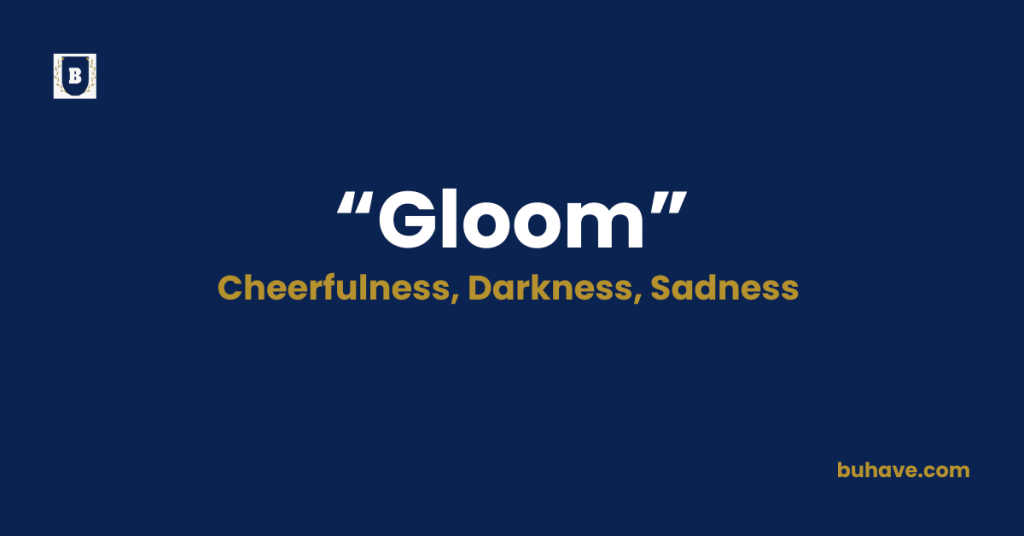The word ‘Gloom’ (Noun) describes a state of partial or total darkness, or a feeling of deep sadness, melancholy, or depression. In this guide, you’ll learn the full definition, synonyms, antonyms, etymology, and real-life examples of how to use ‘Gloom’ correctly in sentences.
Gloom Explained in Depth
A complete and detailed guide to the word ‘Gloom’ including meaning, definition, examples, etymology, synonyms, and antonyms.
Meanings of Gloom
Gloom means a state of darkness, dim light, or shadow, often creating a somber or melancholic mood. Beyond its literal sense of physical darkness,
Definition
Gloom is a noun that means partial or total darkness; it also refers to a state of sadness or melancholy. It can describe an environment that feels depressing or a personal feeling of emotional darkness and discouragement. gloom also refers to a state of deep sadness, dejection, or depression. It can describe an atmosphere of hopelessness or a lack of cheerfulness, both emotionally and visually.
Etymology
The word “gloom” comes from the Middle English gloum, meaning “to look sullen” or “frown,” which is related to the Old Norse glúmr meaning “to glow faintly, be dark.” It evolved to mean both physical darkness and emotional sadness.
Example Sentences
- The room was filled with a heavy gloom after the news of the tragedy spread.
- Despite the sunshine outside, a sense of gloom hung over the entire team.
- He couldn’t shake the gloom that had settled in his heart after the loss.
Gloom Synonyms
- Darkness
- Shadow
- Despair
- Sadness
- Melancholy
- Dejection
- Misery
- Bleakness
- Sorrow
- Hopelessness
Gloom Antonyms
- Brightness
- Light
- Happiness
- Joy
- Cheerfulness
- Optimism
- Hope
- Exuberance
- Radiance
- Sunshine
FAQs about Gloom
Here are some frequently asked questions (FAQs) about the word “Gloom”
1. What does “gloom” actually mean?
“Gloom” refers to both a physical state of dimness or darkness and an emotional state of sadness, depression, or melancholy.
2. Can “gloom” describe a physical place?
Yes, “gloom” can describe a place that is dark, shadowy, or lacking in light—like a gloomy room or a foggy forest.
3. Is “gloom” always negative?
Mostly, yes. “Gloom” usually implies a negative, somber, or depressing mood or atmosphere.
4. Can “gloom” be used as a verb?
Not commonly in modern usage. Historically, “gloom” could be used as a verb meaning “to make dark or sullen,” but today it’s primarily a noun.
5. How is “gloom” different from “sadness”?
“Sadness” is an emotional state of unhappiness, while “gloom” can describe both emotional sadness and the literal absence of light or cheerfulness in an environment.

















